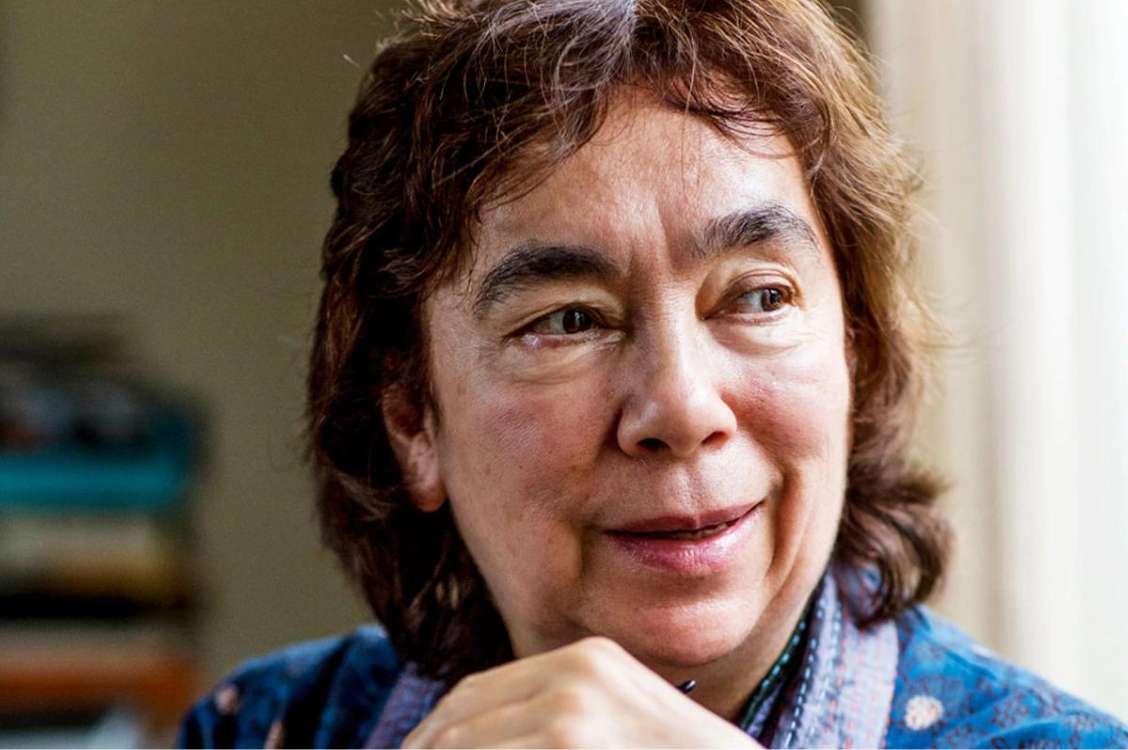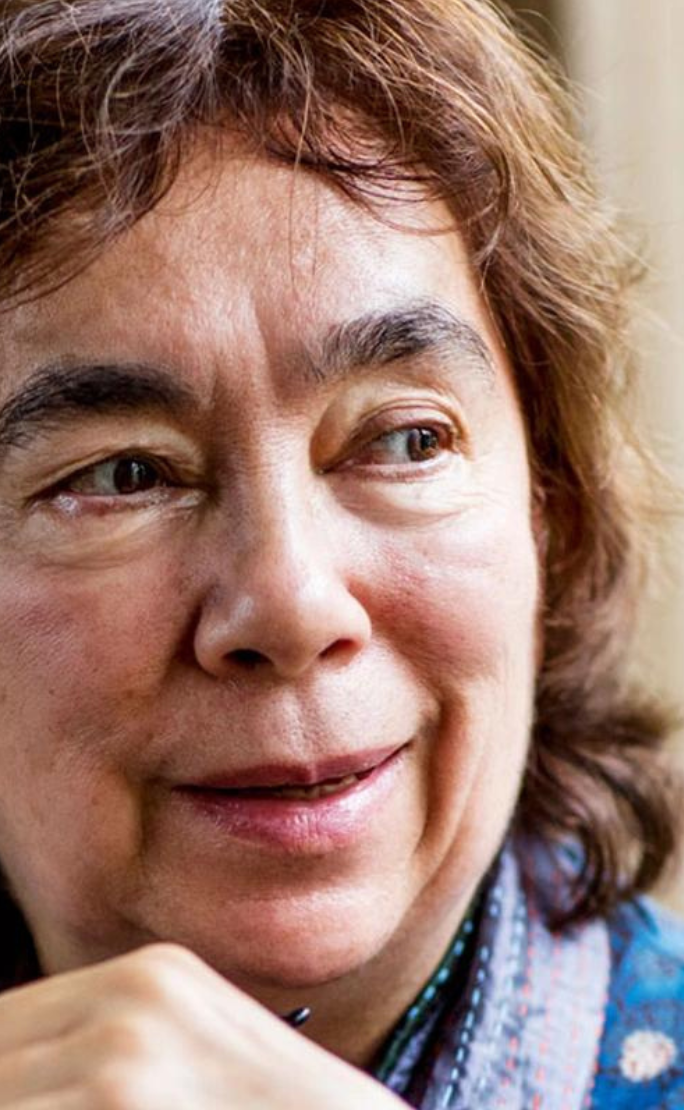
- Free Article: No
- Contents Category: Commentary
- Custom Article Title: The sovereign time of Country
- Review Article: Yes
- Article Title: The sovereign time of Country
- Article Subtitle: Living in the pulse and heartbeat of an infinite clock
- Online Only: No
- Custom Highlight Text:
I have often spoken of trying to write in some meaningful way about what it means to belong to all times in this place that we call our traditional homeland. Aboriginal people know that we have been here since time immemorial. We have never lost track of the wisdom and knowledge that generations of our ancestors had developed over thousands of years about the powerful nature of this country. It was their knowledge that ensured the survival of our culture to this day.
- Featured Image (400px * 250px):

- Alt Tag (Featured Image): Alexis Wright on the sovereign time of Country
It was for no particular reason that Reverend Dr Djiniyina Gondarra, the most respected wisdom teacher and Senior Yolngu elder, Ceremonial Lawman and Clan Leader of the Dhurili Nation of North East Arnhem Land, said that ‘the colonial system is a disease. It is a system of Government that makes you a victim’. He said: ‘We are the natural farmers of this country. We maintain, and we look after the land and that is according to our law. We never change that law, it is still the same today, and forever.’
Why is this ancient law wisdom important? It is important to understanding the powerful nature of Country. The power within the country we all stand on today is always present, and belongs to all times – past, present, and future. You might say we live in the infinite clock of Country – its pulse, its constant heartbeat. The country moving to an eternal pulse covering all of time. We are part of this same heartbeat that is ancient, still evolving and renewing itself. We cannot step out of, or apart from the pulse of Country. We need to keep in tune with its heartbeat. In the Aboriginal world, we often say that we are of one heartbeat – the heartbeat of Country. We also know that Country can be stirred up, that it has the power to destroy, renew, or remain constant. This knowledge of interlinked time – where all time is important and not resolved – is still with us. This is the time that is embedded in our spirit, in who we are, and forms a cultural identity that is tightly enmeshed in the stories about our existence. This, for me, is our bond with Country. All time swirling within us. We have trouble with the importance attached to the linear time of Western ideas and its literature. We are not of the coloniser’s time, a timeline that began in 1788. We beat to a different, much older sovereign time of Country. Within this ancient bond with Country, we have a relationship with the land that gives us our sovereignty since time immemorial that cannot be broken, not by any other law, or new law-making that does not come from the all times continuing knowledge of Aboriginal culture. This is why our old wisdom people keep telling us, our laws never change – they are stronger than whiteman’s laws. Their law is weak, it changes all the time.
This way of thinking is deeply etched in my mind, and I am eternally grateful that I have come from a culture that is so closely interconnected and related to the world in which we live. We do not aspire to be a conqueror of other people’s land, nor to destroy their heartbeat, nor to separate ourselves from the interconnectedness with all things on our place that nurtures us, and gives us joy. We are not into creating false narratives about the past, to falsify it, or to distort it. We try not to breed dictators or despots. Nor are we into wreaking havoc on scarce resources, or bent on the idea that the planet needs to be exploited until it is sucked bone-dry.
The important Mambaliya and Garrara artist Jack Green, in my homelands up North, once described what it was like when he and other custodians and traditional owners tried visiting their traditional Country, now a mining lease in the Gulf of Carpentaria. He said: ‘At the place where McArthur River had been cut and diverted, at the place where they dug The Snake Dreaming, cutting the snake line, cutting the kujika (song), the Junggayi (ceremonial manager or policeman) for that place wept … As the day went on it got worse. We were out in Gudanji Country, a place some of us older people know well. But we didn’t know where we were. The river had gone, huge mountains of waste rock were piled high in the sky, blocking our view of The Barramundi Dreaming. We couldn’t see the sacred sites in relation to each other. The whole place has been destroyed. There were roads everywhere … We were lost in our own country.’1
I am not saying that the past shapes the future in a totally dogged way, where I have needed to constantly tell myself every moment of the day that I must always say something about the all times in a predetermined prescriptive manner to influence how I write.
A writer cannot work this way. A writer can only work with what is in their soul. Some things are either there, or they are not. I do not necessarily believe that other people have a predetermined mindset either. Although, when you see people who are bent on destroying others by creating false narratives of some delusional glorious time in history to repeat, replicate, or prolong misery, you wonder what belongs to the spirit in the era in which we now jointly belong, and while our planet is being propelled into an irreversible man-made global warming emergency. I am not sure. It feels as though we have lost our common sense.
I recently heard a young Indigenous woman, a youth advocate in Alice Springs, describing the youth crime crisis engulfing the town. What she said of the young children she works with was this: ‘They’re hurting inside, deep inside. They can’t see beyond five minutes in front of them. They don’t think they’re gonna live to see tomorrow.’2 Many of these children were born in the years of the government’s dictatorial policy of Intervention, a cruel and ultimately failed, massively expensive policy of great cost to Aboriginal people. Another failed policy. The Intervention was primarily aimed at totally removing any government that Aboriginal people had in their communities in the Northern Territory, to destroy our cultural spirit. In a way, I feel that we are all failing to see what lies ahead, that we cannot think in terms of planetary well-being. We cannot see beyond five minutes in front of us. It feels as though there is a failure of imagination all around, of not being able to imagine how to prevent a local crisis in Aboriginal cultural terms, and having no hope of imagining how to prevent the scale of a global warming crisis already upon us.
Mostly, my literary attempts in book building have been leaps into trying to understand the longevity of our culture, our interconnectedness with Country, and our interconnectedness with the world. We are all in this together. It feels like I have been reaching into, or travelling imaginary roads through both the wonder and the crisis, and trying to keep up with the flight path of an almighty ancestral serpent leaving on its creative journeys, rearranging thought, or what can be thought in its wake. This is the challenge of writing the all times, of chasing infinity itself through word after word through the building of a world of imagination incorporating all times, not just colonial time – yes, important, and we spend our lives fighting for justice, against oppression, and against the scourge of racism, but that is not our box for others to put us into or where we belong. We come from the long ago, and our work is to continue the importance of our world of foreverness, and this brings us to our interconnectedness with the world in the era of the most dangerous time of our existence, man-made global warming.
We know the ancestors are still here. We keep them here while we must keep up with the quickening pace of unprecedented changes taking place in the world. As a writer working in this field, I wonder who will write the important epics of scale of the era, the coming world? Who will have time to write substantial stories about this time, for this century incorporating all times, if writers are discouraged from writing works of depth and importance by the devaluing of literature in a time of its most need?
All these hopes! In practical terms for a future-focused world, it means that we will need to build the capacity of writers, with more highly skilled writers capable of the deepest thinking and the hunger to write major contemporary epics; writers capable of exploring, skilled and experienced enough to imagine the scale and scope of complexities in this rapidly changing world.
We, including publishers, will need to embrace new forms of literature that will absolutely challenge how we think. But it is no good for writers to visualise and commit to writing these all-encompassing epics, or to find the courage to write at this capacity, of imagining the greater world, if we remain broken writers, broken by national cultural policies devaluing literature, that lessen our understanding of the scope of the complexities of where we are at, by governments that have no idea and exclude the possibility of writers creating major works of scale and importance.
Governments need to teach every child – no matter where they live or who they are – the importance of being literature literate. They must know why a higher level of literature literacy is important in a fast-changing world. To know why they must think like a mountain. Or think like an ancestor. Or like an old creation spirit. Or like a future ancestral creator. They need to be challenged to imagine more and truly understand the rich interconnectedness of the world where they know that all times are important, and where no time has ever been resolved in this world we call home. A global home, the only place where we can survive.
This is an edited version of the opening address at the Sydney Writers’ Festival 2023.
Endnotes
1. Arena Online: Jack Green, Sean Kerins, 20 May 2021.
2. ‘A dangerous game’ by Matt Garrick and Maani Truu, ABC News, 18 December, 2022 – https://www.abc.net.au/news/2022-12-18/a-dangerous-game-youth-crime-crisis-alice-springs/101735492.



Comments powered by CComment